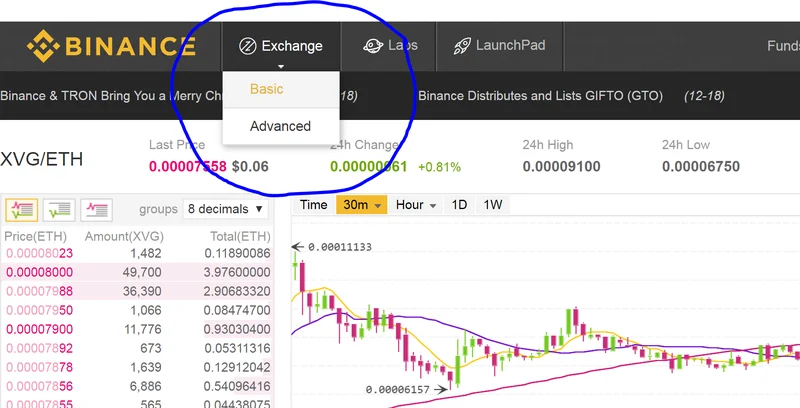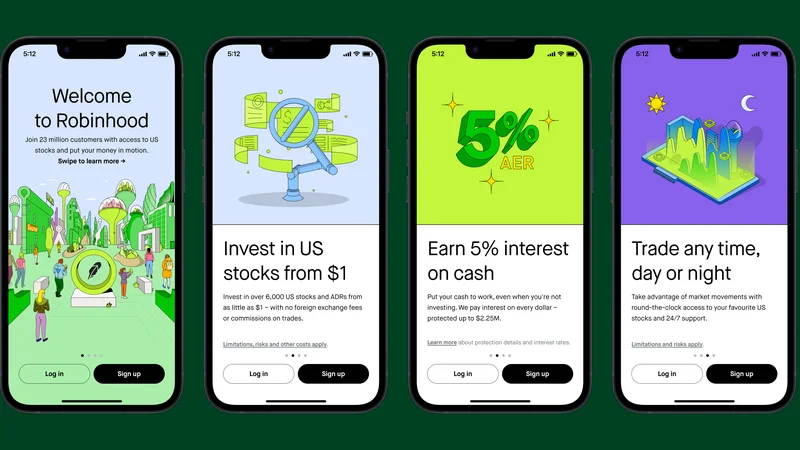Binance: The So-Called 'Best' Exchange vs. Actual DeFi
You have to wonder if there are two completely different companies that just happen to share the name "Binance." Because there’s no other way to explain the schizophrenic reality this crypto behemoth is living in.
In one corner of the world, Binance is less of an exchange and more of a parallel financial system. It’s a titan that, as one report put it, Binance Pulls in Record $14.8B Net Inflow in Q3. It’s the platform where an entire nation, Venezuela, has unofficially dollarized its economy, with shopkeepers pricing goods in "Binance dollars" because their own currency has become worthless toilet paper. It's the engine aiming to turn Thailand into a regional crypto hub. It’s a monster, a force of nature.
And in the other corner? In the United States? It’s a ghost. A tumbleweed blowing through a digital ghost town. Binance.US, the sad, neutered American cousin, has seen its market share collapse from a respectable 10% to a pathetic 0.20%. They're practically paying people to trade, slashing fees to zero in a desperate bid to get a flicker of a pulse.
This isn't just a story of regulatory trouble. This is a story of two alternate universes. How can one entity be so dominant and so irrelevant at the exact same time?
The King of Everywhere Else
Let's be real for a second. The numbers Binance is putting up globally are just insane. A $14.8 billion net inflow in Q3 2025 isn't just good; it's a black hole of liquidity sucking in capital from every competitor. While rivals like OKX and Bybit are fighting for scraps, Binance is eating the whole damn meal. They command over 37% of the global spot market share. That’s not a lead; that’s a lap.
But the raw numbers don't even tell the full story. The most fascinating, and frankly dystopian, part is what’s happening on the ground in places like Venezuela. With inflation hitting 229%, the bolívar is a joke. So what do people do? They use USDT, Tether’s stablecoin, as their real currency. And how do they price and exchange it? Through Binance P2P. Receipts at the grocery store literally show totals in "Binance dollars."
This is the holy grail that crypto evangelists have been screaming about for a decade: banking the unbanked, providing an escape hatch from failed monetary policy. It’s happening. And Binance is the plumbing that makes it all work. It’s like watching a financial coup in real-time, where an app on your phone has more legitimacy than the central bank. It’s a wild, messy, and powerful testament to the platform's reach. So why can’t they even get arrested in America anymore?

The American Ghost Town
You flip the channel over to the US, and the picture is just bleak. Binance.US is a shell of a company. After getting hammered by the SEC in 2023, their volumes didn't just dip; they fell off a cliff and got smashed on the rocks below. They lost their banking rails, effectively becoming a crypto-only island, and users fled for saner shores like `Coinbase` and `Kraken`.
Now, here's the kicker. The SEC, under a new administration, dropped its case back in May. The big, bad regulator is gone. The sun is out. So everyone should be rushing back, right? Wrong. Dead wrong.
Activity has remained "negligible." That’s the official word. As a result, the Crypto exchange Binance.US cuts fees as trading volumes remain abysmal, a classic move when you have no other cards to play. Chris Blodgett, the COO over there, gave the most robotic, PR-scrubbed non-answer you can imagine about "building the best and safest digital asset trading experience." Give me a break. Your house is on fire, Chris. The "best experience" would be one where users actually show up.
This is the part that fascinates me. The legal threat is gone, but the stink remains. It’s like a restaurant that gets shut down for a health code violation. Even after they clean up and get the "A" grade back on the door, are you really eager to order the fish? No. The trust has been vaporized. It’s a powerful lesson: you can survive a fight with the government, but surviving a fight with your own customers’ confidence is a whole different ballgame. It's a bad sign. No, "bad" doesn't cover it—it's a corporate death rattle. And all the 0% fee promotions in the world probably can't save it. Offcourse they'll keep trying...
It's a Trust Thing, Stupid
So what’s the real story here? It ain't about fees or features. It's about trust.
Globally, in countries with broken economies, the risk of using Binance is infinitely lower than the risk of using the local currency. The platform, for all its flaws, is the most trustworthy option available. It’s a life raft.
But in the US, the calculation is flipped. We have a (mostly) stable currency and a dozen other platforms like `Coinbase` that, while not perfect, never got dragged through the mud in quite the same way. The Binance brand in America is now associated with chaos, regulatory nightmares, and a founder who pleaded guilty to federal charges. The SEC might have walked away, but the market hasn’t forgotten.
Binance is a global empire built on being the best option in a world of bad options. But in a market where users have a choice, they’re choosing anyone else. And that’s a stain that no amount of fee-cutting can wash away.
-

Warren Buffett's OXY Stock Play: The Latest Drama, Buffett's Angle, and Why You Shouldn't Believe the Hype
Solet'sgetthisstraight.Occide...
-

The Great Up-Leveling: What's Happening Now and How We Step Up
Haveyoueverfeltlikeyou'redri...
-

The Future of Auto Parts: How to Find Any Part Instantly and What Comes Next
Walkintoany`autoparts`store—a...
-

Applied Digital (APLD) Stock: Analyzing the Surge, Analyst Targets, and Its Real Valuation
AppliedDigital'sParabolicRise:...
-

Analyzing Robinhood: What the New Gold Card Means for its 2025 Stock Price
Robinhood's$123BillionBet:IsT...
- Search
- Recently Published
-
- DeFi Token Performance & Investor Trends Post-October Crash: what they won't tell you about investors and the bleak 2025 ahead
- Render: What it *really* is, the tech-bro hype, and that token's dubious 'value'
- APLD Stock: What's *Actually* Fueling This "Big Move"?
- Avici: The Real Meaning, Those Songs, and the 'Hell' We Ignore
- Uber Ride Demand: Cost Analysis vs. Thanksgiving Deals
- Stock Market Rollercoaster: AI Fears vs. Rate Hike Panic
- Bitcoin: The Price, The Spin, & My Take
- Asia: Its Regions, Countries, & Why Your Mental Map is Wrong
- Retirement Age: A Paradigm Shift for Your Future
- Starknet: What it is, its tokenomics, and current valuation
- Tag list
-
- Blockchain (11)
- Decentralization (5)
- Smart Contracts (4)
- Cryptocurrency (26)
- DeFi (5)
- Bitcoin (31)
- Trump (5)
- Ethereum (8)
- Pudgy Penguins (6)
- NFT (5)
- Solana (5)
- cryptocurrency (6)
- bitcoin (7)
- Plasma (5)
- Zcash (12)
- Aster (10)
- nbis stock (5)
- iren stock (5)
- crypto (7)
- ZKsync (5)
- irs stimulus checks 2025 (6)
- pi (6)
- hims stock (4)
- kimberly clark (5)
- uae (5)
